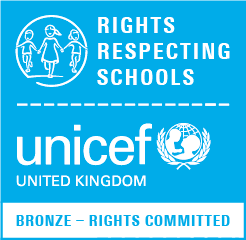What We Teach
website the ravenstone curriculum google docs 1.pdf
|
Curriculum Principles The list below embellishes the building blocks illustrated on the image above |
||
|
Our Curriculum:
|
|
Art & Design |
Exploring creativity and self expression through the visual arts - enabling children to develop their imagination, problem-solving skills, and appreciation for art and culture. |
|
Computing |
The study of computers and how they work - enabling children to develop essential skills for the 21st century, such as problem-solving, critical thinking, and creativity. |
|
Design & Technology |
Combining creativity, practical skills, and problem-solving to design and make products - enabling children to think critically, work collaboratively, and apply their knowledge and skills to real-world problems. |
|
English: Early Reading & Reading |
The study of the process of decoding written text and understanding its meaning - enabling children to develop critical thinking, imagination, and a love of learning. |
|
English: Writing |
The study of effective communication through written language - enabling children to express their ideas clearly, creatively, and persuasively. |
|
English: Spelling |
The study of the correct arrangement of letters to form words - enabling literacy development, academic achievement, and effective communication throughout life. |
|
English: Grammar and Punctuation |
The study of the rules and conventions that govern the structure and meaning of language - enabling children to express their ideas clearly and persuasively, both in their writing and in their speech. |
|
English: Handwriting |
The study of writing letters and words by hand - enabling children to form letters correctly and legibly, and writing with fluency and speed. |
|
English: Spoken Language |
The study of effective communication through speech - enabling children to develop strong communication skills, build relationships, and solve problems. |
|
Forest School |
Offering pupils opportunities to achieve and develop confidence through hands-on learning outside. |
|
Geography |
The study of the Earth and its people - enabling children to develop a sense of place, understand global issues, and appreciate the diversity of the world. |
|
History |
The study of the past events, people, and societies - enabling children to think critically, ask questions, and make connections between the past and the present. |
|
Languages |
Broadening horizons, expanding vocabulary, developing social and cultural awareness of the wider world. |
|
Mathematics |
The study of numbers, shapes, patterns, and how they relate to the world around us - enabling children to think logically, solve problems, and make connections. |
|
Music |
The study of sound, rhythm, and melody - enabling children to express emotions, appreciate beauty and develop a lifelong love of music. |
|
Physical Education |
The study of physical activity, health and well-being - enabling children to develop a love of physical activity and establish lifelong healthy habits. |
|
Personal, Social, Health & Economic |
The study of healthy, happy, and fulfilling lives - enabling children to make positive choices, develop empathy, and become responsible citizens. |
|
Religious Education |
The study of world religious and non religious ways of life - enabling children to gain an understanding of the world, different cultures, and the values that shape human societies. |
|
Science |
The study of the natural world through observation, experimentation, and investigation - enabling children to explore the world around them, ask questions and develop a lifelong curiosity about how things work. |


